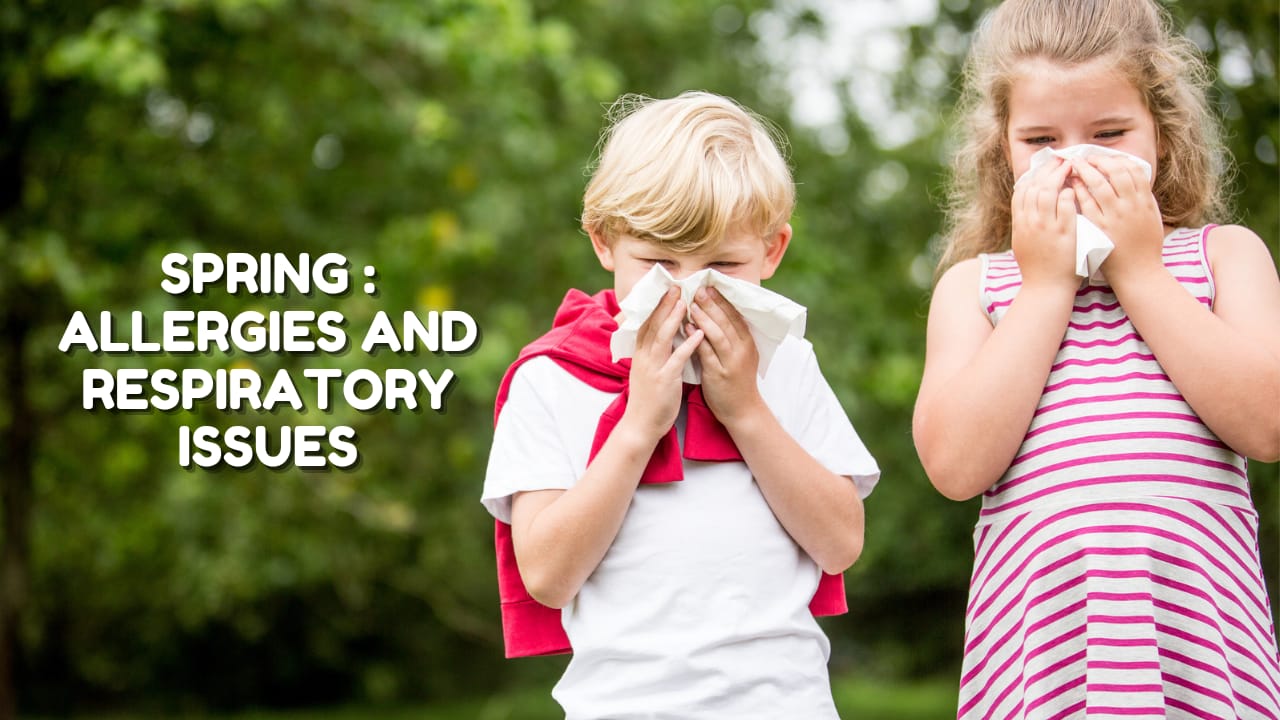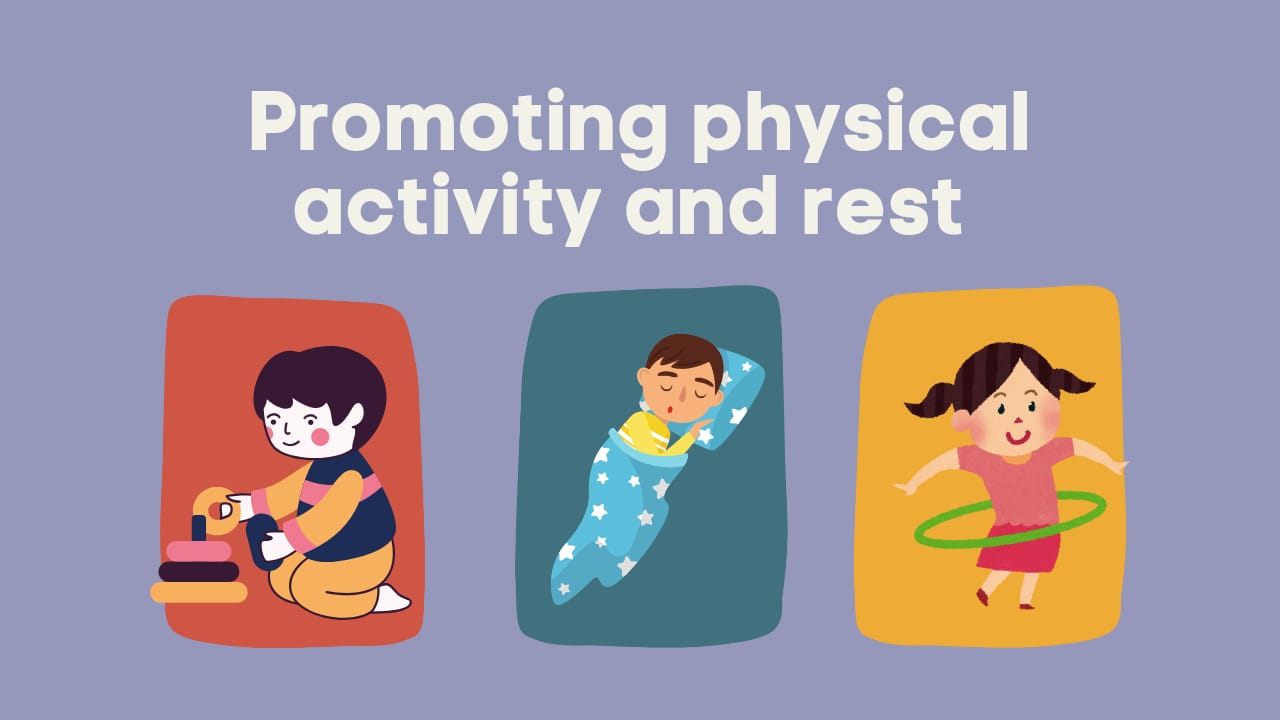The changes in the seasons can cause significant changes in the environment, which affect a child’s health in various ways. From the increase in allergies in spring to common colds in winter, every season brings specific challenges that require attention and preventive treatment. As caregivers and parents, being aware of these challenges and implementing proactive health measures will ensure that children stay healthy and active throughout the year.
Understanding Seasonal Changes and Their Impact on Children’s Health
Children, because of their growing immune systems are more prone to the adverse health effects of the changing seasons. Each transition has diverse environmental conditions, such as temperature variations, humidity changes, and different amounts of allergy-causing substances. These environmental conditions can affect the child’s health as they raise the chance of getting sick, which triggers allergies and affects overall well-being.
Spring: Allergies and Respiratory Issues

Spring is associated with new beginnings and blossoming flowers. But for many kids, it’s also the time of allergy. Pollen from grass, trees, and weeds may trigger allergies, resulting in symptoms like sneezing, itchy eyes, and swollen noses.
- Common Spring Allergies: Mold spores, pollen, and dust mites are the main allergens that can cause breathing problems for children. Asthma symptoms may also be worsened during this time because of the increased number of pollen particles.
- Preventive Measures:
- Keep windows shut during high pollen levels to keep allergens found in the outdoors from entering your home.
- Make sure you wash your hands frequently and avoid touching your face to limit the risk of exposure to allergens.
- Think about air purifiers equipped with HEPA filters to lower the levels of indoor allergens.
Summer: Heat-Related Illnesses and Skin Care
Summer brings warmer temperatures and longer days that are ideal for outdoor sports. However, the heat can create risks, including heat exhaustion, dehydration, and sunburn.
- Risks Associated with Heat: Young children are more susceptible to heat-related diseases because of their small body size and excellent metabolic rates. This can cause rapid dehydration and heat exhaustion.
- Preventive Measures:
- Keep children well hydrated by drinking plenty of drinking water during their day.
- Dress them in light, loose-fitting clothes and apply SPF 30 or more sunscreen to shield the skin from harmful UV rays.
- Make sure to play in shaded areas, and beware of outdoor activities during the sun’s peak time (10 a.m. until 4.30 p.m.).
Autumn: Flu Season and Immunizations
As summer turns to autumn, cooler temperatures, drier weather, and longer indoor durations are significant factors in spreading respiratory diseases like the flu.
- Influenza and Common Cold: The transition from summer to autumn usually marks the start of flu season. Children are especially vulnerable to the flu because of their constant interactions with their peers and their lower level of immunity.
- Preventive Measures:
- Ensure your child receives the flu vaccine each year, as it is among the most effective methods to avoid getting influenza.
- Learn how to properly wash your hands for children and hand washing with water and soap for at least 20 seconds.
- To avoid the transmission of germs, make sure to cover your face and mouth with a towel or elbow while the person is coughing or sneezing.
Winter: Cold Weather and Immune Support
Winter brings colder temperatures, which can boost upper respiratory infections like colds, bronchitis, and pneumonia.
- Cold-Weather Infections: The combination of cold temperatures, indoor heating, and tight quarters in winter may cause dry mucous membranes and make children more vulnerable to infections.
- Preventive Measures:
- Keep your children warm with suitable layers of clothing, such as gloves, hats, and scarves.
- Keep the humidity in the indoor area reasonable to avoid dry air, which could irritate your respiratory tract.
- Attention to eating a balanced diet rich in vegetables, fruits, and lean proteins to strengthen your immune system.
Boosting Immunity Through Nutrition
Nutritional health plays an integral part in maintaining a healthy immune system, particularly during times of change in seasons, which make children more vulnerable to illnesses. A diet rich in minerals, vitamins, and antioxidants may benefit to strengthen children’s natural defenses.
Importance of a Balanced Diet
A balanced and healthy diet, which incorporates various vegetables, fruits, whole grains, protein, and healthy fats, provides the essential nutrients needed for the function of your immune system.
- Critical Nutrients for Immunity:
- Vitamin C: Found in citrus fruits, strawberries, and bell peppers, Vitamin C is renowned for boosting immunity.
- Vitamin D is Vital for the immune system. Vitamin D is gained from exposure to sunlight and food items like fortified milk or fatty fish.
- Zinc is found in meat, beans, nuts, and dairy products. It plays an important role in the immune system and healing wounds.
Hydration and Its Role in Health
Being hydrated is crucial to ensure the body’s overall functioning and immunity. A healthy intake of fluids assists in flushing out toxic substances and maintaining mucous membranes in a moist state, which serves as an effective barrier against pathogens.
- Tips for Ensuring Proper Hydration:
- Encourage children to drink plenty of water often, especially after exercise.
- Serve water-rich vegetables and fruits like watermelon, cucumbers, and oranges for snacks.
Promoting Physical Activity and Rest

Rest and physical activity are essential elements of a healthy lifestyle. They contribute significantly to strengthening a child’s immune system.
The Benefits of Regular Exercise
Regular exercise helps boost cardiovascular health, build muscles, and improve the immune system by encouraging the flow of cells that fight infection throughout your body.
- Ideas for Keeping Active:
- Encourage children to play outside and engage in sports and other activities that kids love.
- Limit the time spent on screens to ensure children are given ample opportunities to engage in physical activities.
Importance of Quality Sleep
Sleep is vital for overall well-being and overall health. During sleep, your body repairs itself, and your immune system produces cytokines that fight off infections.
- Establishing a Healthy Sleep Agenda:
- Establish regular bedtime and wake-up times to regulate your human body’s internal clock.
- Set up a bedtime routine like reading a story or relaxing in a warm bath to help children relax.
Creating a Healthy Home Environment
A healthy and safe home environment prevents illness and improves overall health. Simple changes to the house can significantly impact the child’s health when there are the seasons of change.
Maintaining Cleanliness
Regularly cleaning and disinfecting surfaces, including those highly touch-sensitive, such as light switches and doorknobs, could reduce germ contamination.
- Cleaning Tips:
- Use disinfectant sprays or wipes on surfaces that are often touched.
- Be sure to wash bedding and toys frequently to eliminate allergens and odors.
Air Quality and Ventilation
The quality of air is crucial to ensure good health. A sound ventilation system can reduce allergens and indoor pollutants that can worsen respiratory problems.
- Improving Air Quality:
- Utilize air purifiers that have HEPA filters to remove airborne particles.
- Make sure to open the windows regularly, allowing circulation of fresh air.
Encouraging Good Hygiene Practices
Teaching children about good hygiene is among the most effective methods of preventing infection, particularly during the seasons of change.
Hand Hygiene

Handwashing is an easy but effective way to avoid the transfer of germs. Instruct your children how to clean their hands often, particularly before eating and after with the bathroom.
- Handwashing Steps:
- Clean hands and clean running water.
- Apply soap and lather by applying your hands together and covering all surfaces.
- Scrub for at most 20 seconds, wash, and dry with an untidy towel.
Respiratory Hygiene
Encouragement of children to practice good respiration hygiene can help stop the spreading of respiratory illnesses. If you are coughing, learn to cover your nostrils and mouth with a towel or an elbow.
- Additional Tips:
- Encourage their use when they are needed.
- Help children dispose of old tissues in a garbage bin and wash their hands afterward.
Conclusion
A systematic approach to ensuring children’s health during seasonal changes is required. This approach includes recognizing the risks associated with each seasonal change and boosting immunity by consuming sufficient nutrition and drinking plenty of water, encouraging exercise and rest, ensuring a healthy living environment, and encouraging healthy hygiene methods. Through these measures, parents and caregivers can safeguard their children from seasonal diseases and ensure they are happy and healthy throughout the year.
FAQs
Which are the top frequent ailments children suffer from during the seasonal change?
Children are often faced with respiratory problems such as the common cold and flu in winter, allergies in the spring, heat-related illness in the summer months, and respiratory illnesses during autumn. Every season has its own unique problems that require a variety of preventive steps.
How can I safeguard my child from hay fever in spring?
To safeguard your child from allergies in the spring Keep windows closed when pollen counts are high. make use of air purifiers that have HEPA filtering, as well as also encourage regular hand washing. Also, think about consulting with your pediatrician regarding allergy medication if necessary.
Which are the best suggestions to keep children hydrated during the summer?
Make sure your kid drinks plenty of water frequently, particularly when they are outdoors. Give water-rich fruits such as cucumbers and watermelon for snacks. Avoid beverages that are sweet, as they can cause dehydration.
What can I do to increase the quality of indoor air to boost the health of my child?
Improve the quality of indoor air improve indoor air quality together air purifiers that have HEPA filters, which keep the house clean and free of dust. You can also do this by air-conditioning rooms by opening windows frequently. This can help reduce indoor pollutants and allergens that could affect the health of your respiratory system.
What are some methods to strengthen my child’s immunity during seasonal changes?
Increase your child’s immune system by feeding them a healthy diet high in vegetables, fruits, and whole grains. Make sure they are hydrated, participate in regular exercise and adhere to a regular schedule for sleeping. Consider taking a daily multivitamin as advised by a healthcare professional.
